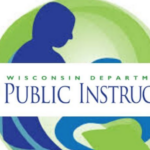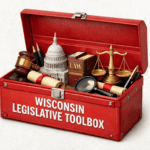MADISON, Wis. (Aug. 27, 2025) – A state audit has revealed that Wisconsin’s Department of Natural Resources spent less than half of its Fish and Wildlife Account funds last year on programs that directly benefit hunters and anglers, prompting sharp criticism from lawmakers and renewed calls for greater financial accountability.
According to the Legislative Audit Bureau’s newly released Report 25-15, the DNR used just 49.8% of its state-revenue-supported Fish and Wildlife Account expenditures—$46.3 million out of $92.9 million—on activities that primarily benefit hunting and fishing in fiscal year 2023–24. The percentage has dropped steadily since 2006, when the figure stood at 57.3%, or $68.2 million.
The report was requested by the Joint Legislative Audit Committee, which is co-chaired by Senator Eric Wimberger (R–Oconto) and Representative Robert Wittke (R–Caledonia). In a joint statement, the lawmakers voiced serious concern over the department’s financial practices.
“There is no reason that the Fish and Wildlife Account should be over $10 million in deficit, while also spending less than fifty percent of its funds on activities that primarily benefitted hunting and fishing,” they said.
“The DNR must provide reassurance that it will be more accountable with its own finances before it comes back to the Legislature asking us to pass its costs onto outdoor enthusiasts.”
The Fish and Wildlife Account is funded largely through hunting and fishing license fees, along with associated stamps and permits. In recent years, the account has also been supplemented by federal funds and state budget transfers to stave off structural deficits.
Revenue Up, Transparency Down
According to the audit, Fish and Wildlife Account revenues rose 23.6% over the last four years, from $114.0 million in FY 2019–20 to $140.9 million in FY 2023–24. But spending hasn’t kept pace with expectations. Total expenditures reached $126.2 million, of which $44.9 million (48.3%) was categorized as “shared expenditures,” meaning it supported more than one function or program. $9.6 million, or 10.3%, went toward administrative costs.
The DNR also received $26.0 million under the federal Pittman-Robertson Wildlife Restoration Act and $11.1 million under the Dingell-Johnson Sport Fish Restoration Act—programs intended to bolster state-level conservation work.
Nine Recommendations from Auditors
The report includes nine recommendations for how the DNR should improve its financial oversight:
- Establish a clear, written methodology for allocating shared costs across programs.
- Update procedures for timekeeping and approval of employee timesheets.
- Improve reporting on shared and administrative expenditures.
- Clarify how federal funds and state revenue are allocated and tracked.
- Strengthen documentation of how license fee revenue supports specific activities.
- Increase transparency in internal budgeting and program decision-making.
- Enhance accounting practices and financial internal controls.
- Define what constitutes activities that “primarily benefit” hunters and anglers.
- Periodically review and revise cost-allocation methods to maintain compliance with state law.
New Leadership Faces Immediate Pressure
The audit’s release coincides with the arrival of Dr. Karen Hyun, the new DNR secretary appointed by Governor Tony Evers earlier this year. Her appointment ended a prolonged vacancy at the top of the agency following the departure of former Secretary Adam Payne.
While lawmakers previously criticized the leadership vacuum, Hyun now runs an agency facing mounting scrutiny from both legislators and sportsmen. Whether her tenure begins with decisive action on the audit’s findings may set the tone for her time in office.
The DNR has not yet issued a public response to the audit, but the Joint Legislative Audit Committee is expected to hold a public hearing on the findings in the coming weeks.
Previously on Dairyland Sentinel














